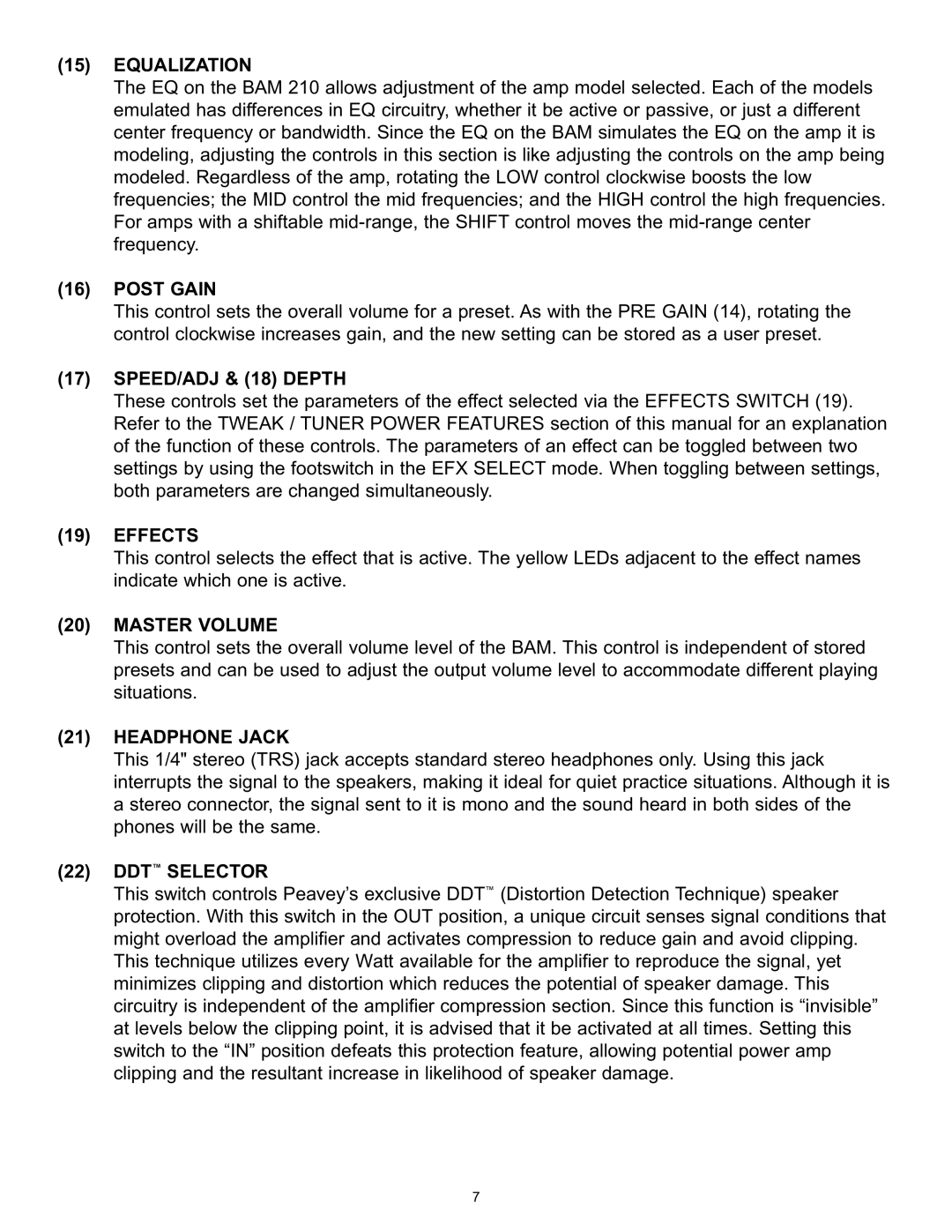(15)EQUALIZATION
The EQ on the BAM 210 allows adjustment of the amp model selected. Each of the models emulated has differences in EQ circuitry, whether it be active or passive, or just a different center frequency or bandwidth. Since the EQ on the BAM simulates the EQ on the amp it is modeling, adjusting the controls in this section is like adjusting the controls on the amp being modeled. Regardless of the amp, rotating the LOW control clockwise boosts the low frequencies; the MID control the mid frequencies; and the HIGH control the high frequencies. For amps with a shiftable
(16)POST GAIN
This control sets the overall volume for a preset. As with the PRE GAIN (14), rotating the control clockwise increases gain, and the new setting can be stored as a user preset.
(17)SPEED/ADJ & (18) DEPTH
These controls set the parameters of the effect selected via the EFFECTS SWITCH (19). Refer to the TWEAK / TUNER POWER FEATURES section of this manual for an explanation of the function of these controls. The parameters of an effect can be toggled between two settings by using the footswitch in the EFX SELECT mode. When toggling between settings, both parameters are changed simultaneously.
(19)EFFECTS
This control selects the effect that is active. The yellow LEDs adjacent to the effect names indicate which one is active.
(20)MASTER VOLUME
This control sets the overall volume level of the BAM. This control is independent of stored presets and can be used to adjust the output volume level to accommodate different playing situations.
(21)HEADPHONE JACK
This 1/4" stereo (TRS) jack accepts standard stereo headphones only. Using this jack interrupts the signal to the speakers, making it ideal for quiet practice situations. Although it is a stereo connector, the signal sent to it is mono and the sound heard in both sides of the phones will be the same.
(22)DDT™ SELECTOR
This switch controls Peavey’s exclusive DDT™ (Distortion Detection Technique) speaker protection. With this switch in the OUT position, a unique circuit senses signal conditions that might overload the amplifier and activates compression to reduce gain and avoid clipping. This technique utilizes every Watt available for the amplifier to reproduce the signal, yet minimizes clipping and distortion which reduces the potential of speaker damage. This circuitry is independent of the amplifier compression section. Since this function is “invisible” at levels below the clipping point, it is advised that it be activated at all times. Setting this switch to the “IN” position defeats this protection feature, allowing potential power amp clipping and the resultant increase in likelihood of speaker damage.
7
